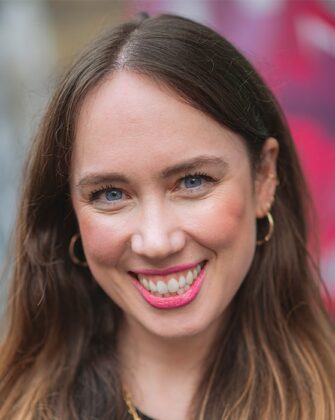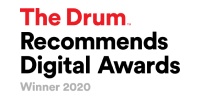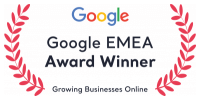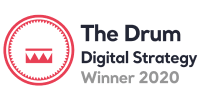Marketing is a field that has evolved rapidly over the last few decades. When Google Adwords was first launched 20 years ago, all advertising spend was offline, such as TV, print and radio. However, by 2019, online advertising had outstripped all other advertising channels combined; the pandemic has only proved to accelerate this and now, in 2021, two-thirds of all advertising spend was digital.
So now, marketing stands at a critical juncture:
- New regulation around privacy challenges the very targeting and measurability that has made online advertising so effective
- Brands are starting to boycott platforms like Facebook, citing safety concerns
- The pandemic and climate change are forcing marketers to ask themselves what role they play in creating a sustainable future.
Hosted by Jake Third, Hallam’s MD, our Future of Marketing event, run in collaboration with the University of Nottingham, brought together the brightest minds in the industry to discuss the challenges and opportunities that are on the horizon, whilst exploring just how big businesses and SMEs alike can stay ahead of this ever-changing curve.
Here we take a look at the key discussion points from the evening.
What mega-trends will shape the external marketing environment across the next decade?
Julio Taylor, Hallam’s CEO, said: “I think we’re about to enter one of the most transformational periods in our lifetime, but certainly in history: the Transformational Twenties. The next decade will be a wave of transformation unlike ever we’ve ever seen before. In just 10 years, we’ll see the biggest change to our industry and the field of marketing.
“In modern marketing, the late 90s had the dawn of the internet and digital as a viable economic vehicle and commercial tool. In the early 2000s, digital transformation and the growth of businesses like Amazon and ecommerce becoming prevalent in general were introduced just before the massive economic crash. In recent years, we’ve had the Covid-19 pandemic and the vital role that digital played.
“Now, post-Covid, consumer behaviours are changing again and consumers are expecting more from brands, including more ethical choices and, in addition to that, a co-ordinated response to a new demand of transparency around environmental factors. For the first time ever, marketing is right at the forefront of that conversation, carrying the message of both global change and climate change.
“Plus, we’ll have to navigate the upcoming privacy changes and the ‘death of the cookie’, which has built digital marketing as we know it. The next 10 years are going to see this hugely accelerated period of change.”
For Dr Elena Francu, Assistant Professor in the marketing department at Nottingham University Business School, there were two dimensions to the next decade’s trends. She added: “Firstly, in the post-cookie world where digital and physical realms are coming together, to create seamless experiences and supporting technologies. These can be achieved if brands are agile but the question is where can we get data from consumers in order to deliver on that promise.
“Alongside this, we’ll see a decrease in trust in brands and a consumer reckoning in terms of their needs, including how brands align with their values. Plus, thinking of the ageing consumer and how our lifestyles are expanding, we’ll be shifting from what we now understand as consumer concentricity to values-based marketing: the future will see marketing not just being about meeting needs but meeting values, too.”
How can SMEs take advantage of existing machine learning technology and market technology, such as voice search, more broadly in their digital marketing?
Dr Naomi Muggleton, from the University of Oxford, has a Masters in behavioural economics, a PhD in evolutionary psychology and has research spanning predictive analytics in a variety of sectors.
She said: “Using machine learning, I previously worked with a bank to understand the personality profile of certain customers; for example, we found that customers who are high in extroversion tend to go to the pub more whereas those who are more introverted tend to stay at home to do crafting. With new customers, you can make predictions about suggested spending and behavioural patterns, particularly for similar businesses who have huge amounts of data on their customers.
“But we need to be careful in this space; there’s a risk that businesses will apply machine learning to everything. This runs the risk of gaining no insight that will be helpful: you have to be selective about the data science projects that you take on, combining power with this theory-based approach. It’s not about applying it to every problem but using it as a tool to get to know your customers better.”
So data aside, what about machine learning in content production and SEO? Hallam’s Organic Performance Director, Charlotte Tomlinson, said: “There’s also development of, for example, GPT-3; a machine learning model that uses prompts to return natural language. There’s many uses for this, but we’re already seeing it used for metadata, compiling basic blogs, social media posts or product category pages.
“Whilst we can use these models as a starting point, we’re nowhere near machine learning taking over; it still needs humans for opinion-led, thought leadership pieces, with human editors to monitor tone of voice and nuances in language.”
With a somewhat overwhelming array of technology ahead of it, we’d be foolish not to buy into everything and make the most of it – right? However, Charlotte explained that this isn’t the case.
She said: “If you don’t have capability in house to test machine learning, there’s relatively inexpensive tools out there to get started with and test whether this is something that could work for you. Either way, an important point to note is not to try and do everything: do your research, see what your competitors are doing but don’t feel like you need to chase the latest trend and do everything.”
What are the perennial truths of marketing that will not change in the future?
Dr Benjamin Lucas, Managing Director of the Data-driven Discovery Initiative, 3DI, at the University of Nottingham: “Change is the only constant.”
Dr Naomi Muggleton: “As important as data science and machine learning is, they’re revolutionary tools. It’ll always be the case that knowing your customer is always going to be key.”
Charlotte Tomlinson: “To quote Mark Ritson, you need to kill the hypothetical customer. Market research will always be the fundamentals of marketing strategy.”
Julio Taylor: “Change is inevitable and unforgiving but the alternative will be irrelevance. Embrace the fact that things are going to change and adopt a culture of innovation. Embrace change or embrace irrelevance.”
Dr Elena Francu: “Caring about your customer will never go out of fashion. As the quote goes, “the lightbulb did not come from the continuous improvement of candles”. Marketing is ever changing, so how do we plan for a change of the future that is unknown?”
What one recommendation would you give to SMEs to implement in 2022?
Dr Naomi Muggleton: “I’d say think carefully about the ways in which you use the data about your customers. A few select projects will yield far more than lots of projects: think quality over quantity.”
Dr Benjamin Lucas: “Recognise that the fundamentals of marketing, such as customer centricity – pay attention to that. Include experience, empathy and trust.”
Charlotte Tomlinson: “Don’t just focus on short term leads and sales. Focus on long term brand building.”
Julio Taylor: “The job of the marketer is to make your customer irrationally love what you’re trying to sell to them – that will never change.”
Dr Elena Francu: “… and, while you’re at it, market with your consumer’s wellbeing in mind.”









